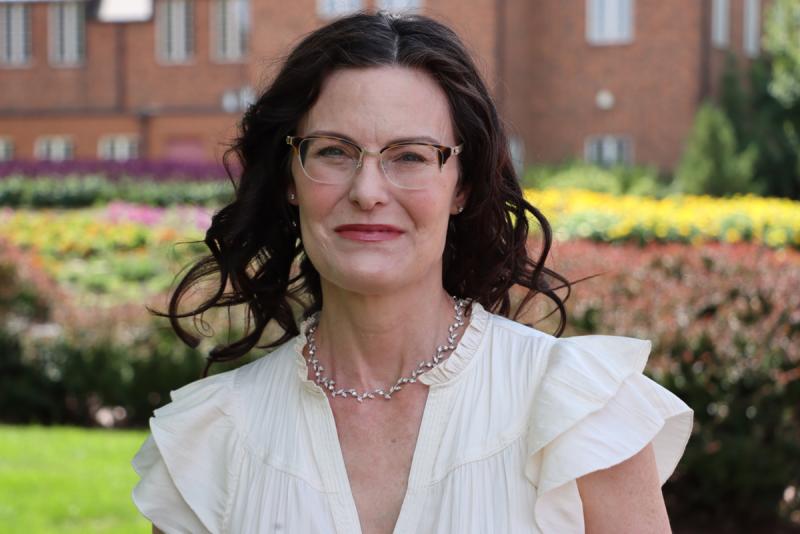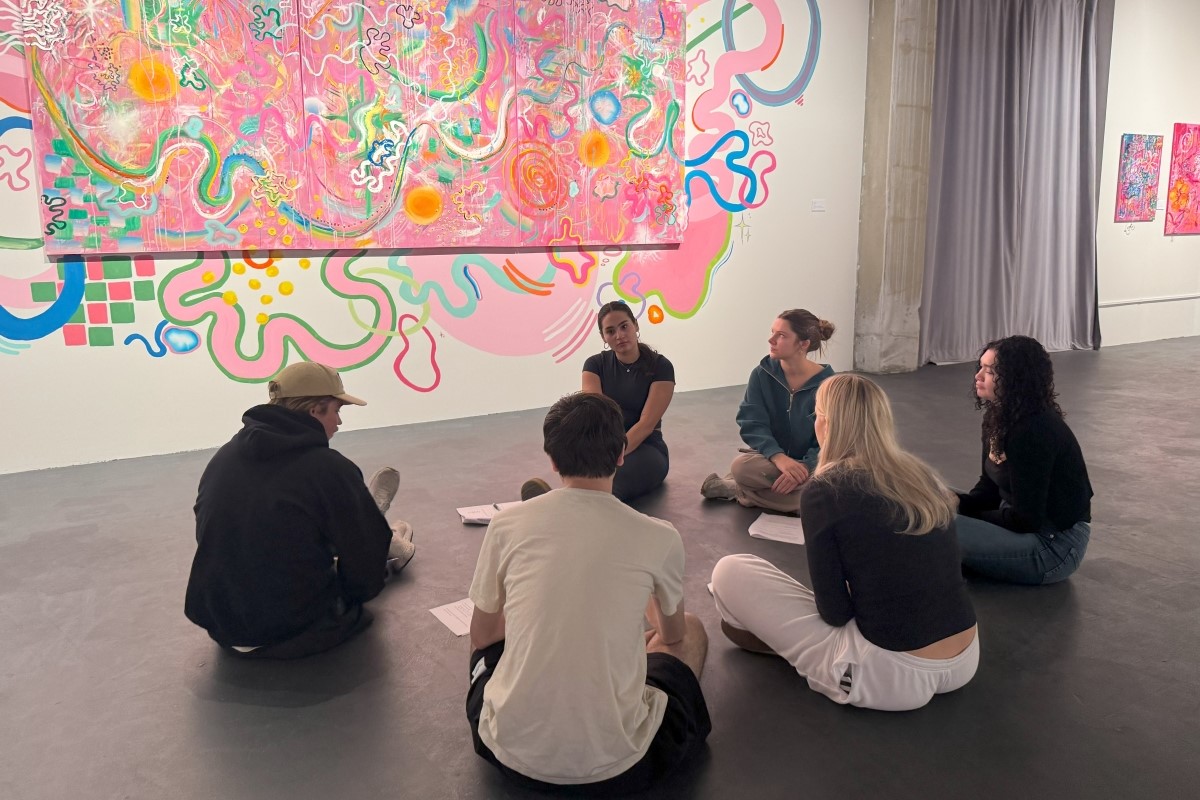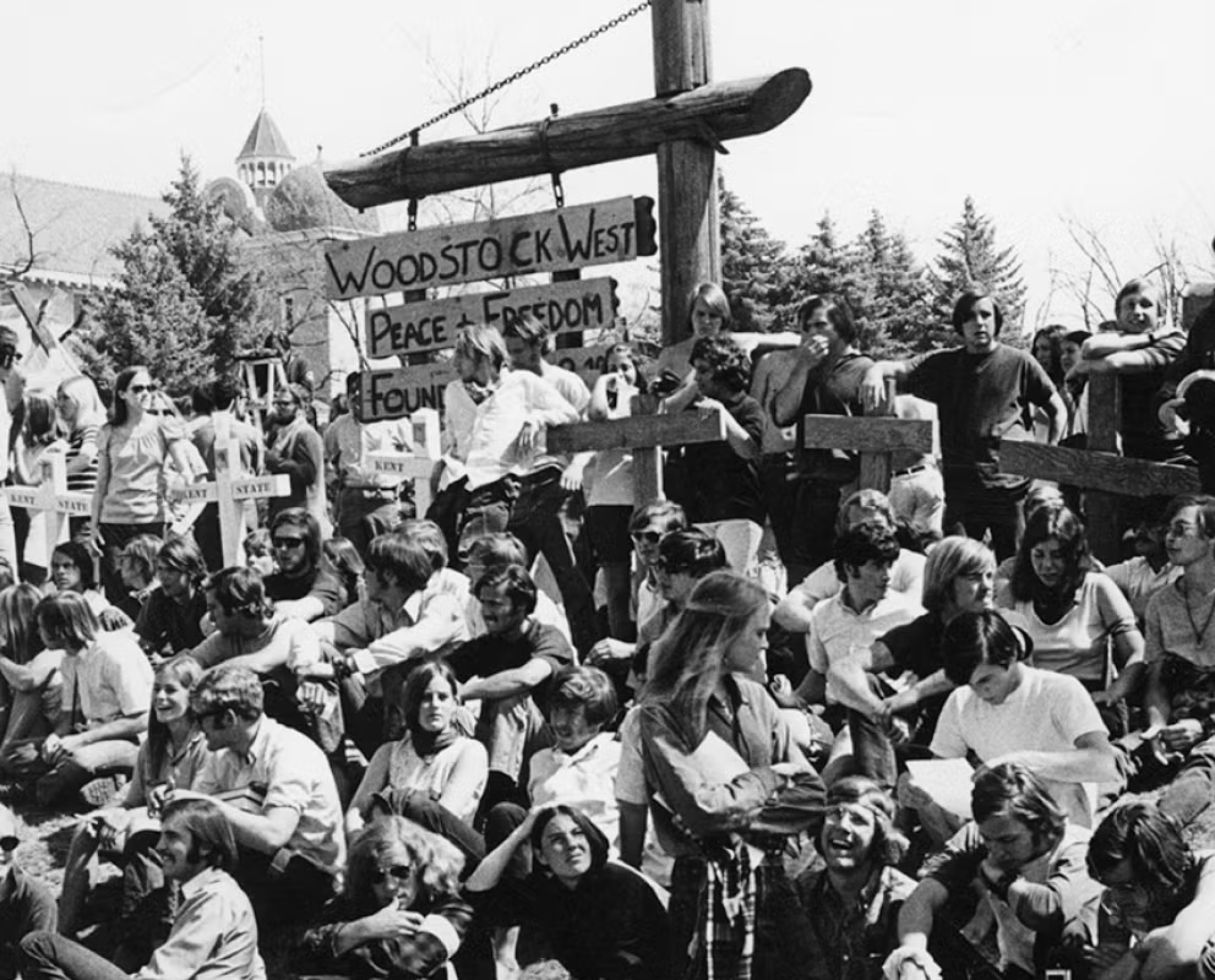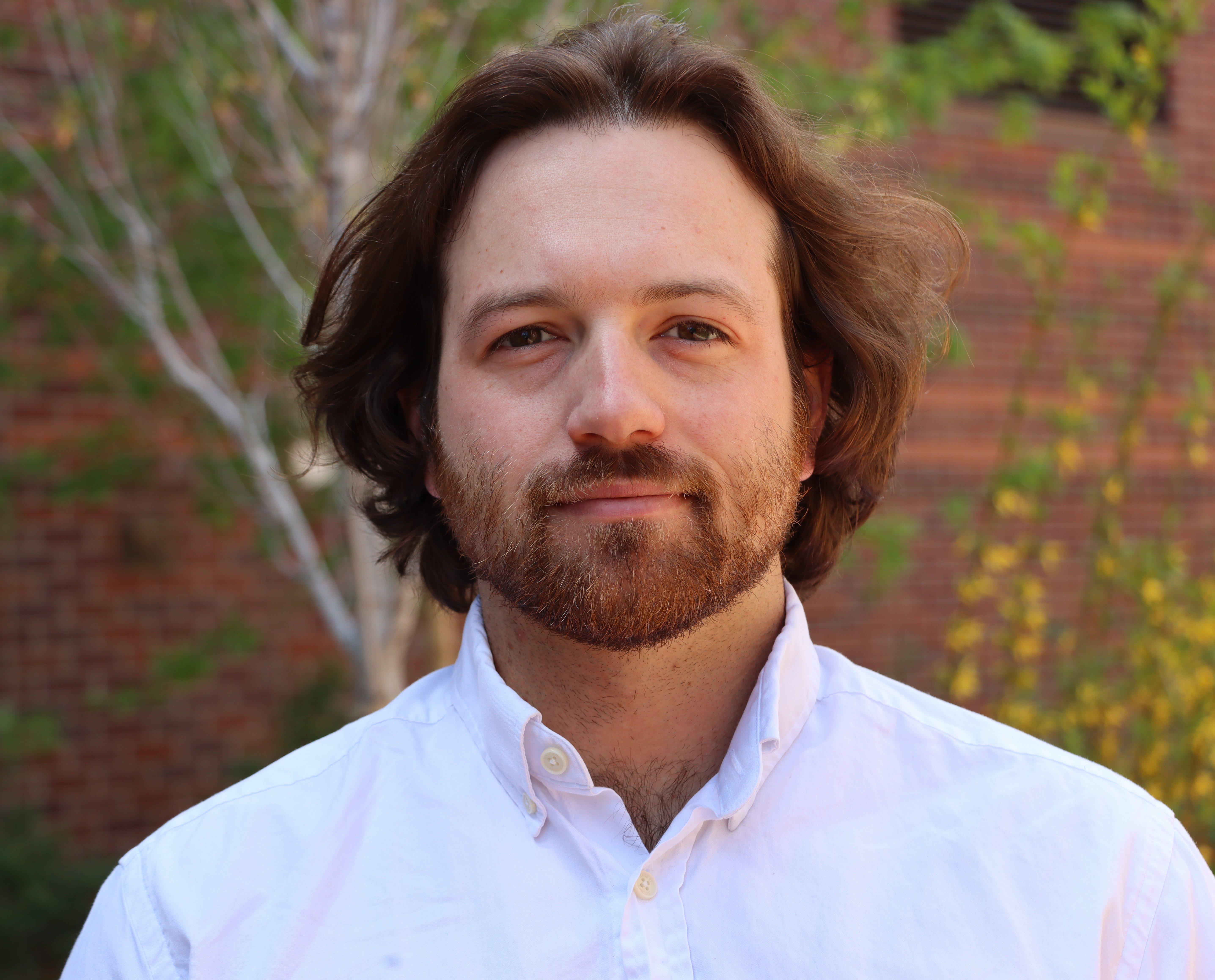CAHSS Communication Studies Professor’s Classes Foster Interpersonal Connections, Build Real-World Skills

Find more information on these and other CAHSS communication studies classes here.
When Communication Studies Professor Beth Suter took a class in interpersonal and family communication as a prelaw major at the University of Illinois at Urbana-Champaign, she “fell in love” and knew she’d found her true calling.
She went on to earn a PhD in speech communication focused on culture and family in 2001 and has been studying how nontraditional families collide with cultural norms “of what constitutes ‘real family’ or ‘moral family’” ever since.
Suter joined the College of Arts, Humanities & Social Sciences (CAHSS) Department of Communication Studies in 2005 after three years as visiting assistant professor at the University of Nebraska. While there, she researched co-mothering families with one biological mother and one non-biological mother who “were bumping up against a conservative political landscape with no legislation yet that validated their families.”
After adopting a child transracially and internationally, she expanded her studies into race and internationalism and included them in her ASEM course “Communication and Adoption.” Her popular “Family Communication” course focuses more broadly on family systems theories and includes family systems, conflict management, power, family norms and culture. “We look critically at the family as an institution and at family and gender roles, different family forms and how issues of culture play into family dynamics,” she said.
The “Qualitative Inquiry in Communication” course Suter teaches offers students firsthand experience in conducting interview-based academic research, a skill applicable to a variety of academic and career paths. “Students choose topics close to their hearts, from gender identity and sexuality to mental and physical illnesses,” Suter said. Recent topics ranged from long-distance relationships to the meaning of friendship and the safety of dating apps.
Students design proposals, recruit participants and conduct four interviews. Suter guides students in interview planning and techniques, including the art of asking probing, follow-up and open-ended questions. The class includes role playing and “thematic, reflective analysis,” wherein students learn how to develop and define themes and code interviews. The process challenges students to consider “how they are seeing this data through the lens of their own cultural, world views,” Suter added. “I want them to gain perspective on how much they thought they understood a topic versus how really listening teaches them.”
According to Suter, students put skills to work immediately in sometimes surprising ways. In her class last spring, for example, one student used a newly acquired interview technique to improve communication with their dad. Experience gained in the class likewise opens unexpected opportunities.
Anna Filippova ('26), communication studies and political science major with a minor in socio-legal studies, credits Suter’s class with helping her develop a fresh perspective on research and land a position as a student writer in University Relations. “In my job I frequently interview individuals for stories, write relevant interview questions and search for story themes, all skills I learned and utilized in Dr. Suter’s class. She is also my communication advisor, and her mentorship has helped me with my post-grad plans. It’s been comforting to have a faculty member I can turn to for support outside of just strictly academics.”
Communication studies similarly provides students with skills essential to their career trajectories including strong verbal and written communications skills, enhanced by the program’s interdisciplinary focus. “The Chancellor talks about DU as a great place to get a double major and communication studies is a really great place to do that,” Suter said. Students have double majored in political science, physics, international studies, public policy and digital media, for example.
Suter also teaches first-year FSEM classes and is currently developing the new FSEM “Communicating to Connect: The Art and Science of Communication in Personal Relationships,” to foster authentic in-person student connections that can combat the alienation and loneliness caused or exacerbated by overreliance on technology. “I want to give students the opportunity to get off their screens and focus on developing and maintaining relationships which is so vital to the college experience.”
According to Suter, communication studies classes extend theory beyond the classroom through courses in collaboration, negotiation, argumentation and public speaking.
“Today’s learners are yearning for those more active, embodied experiences,” she said. “Many of our majors choose communication studies because communication professors are committed to an active, discussion-based approach that encourages getting up and doing things.”





